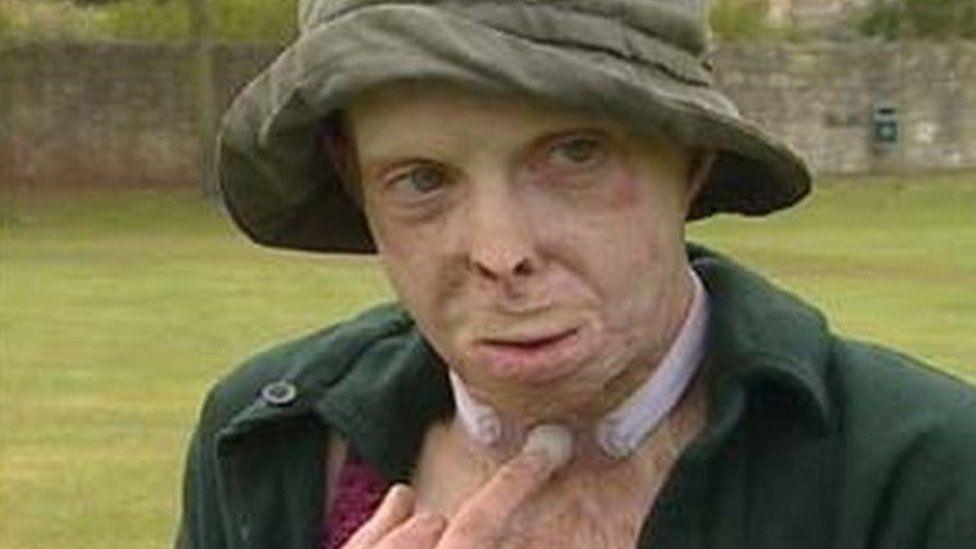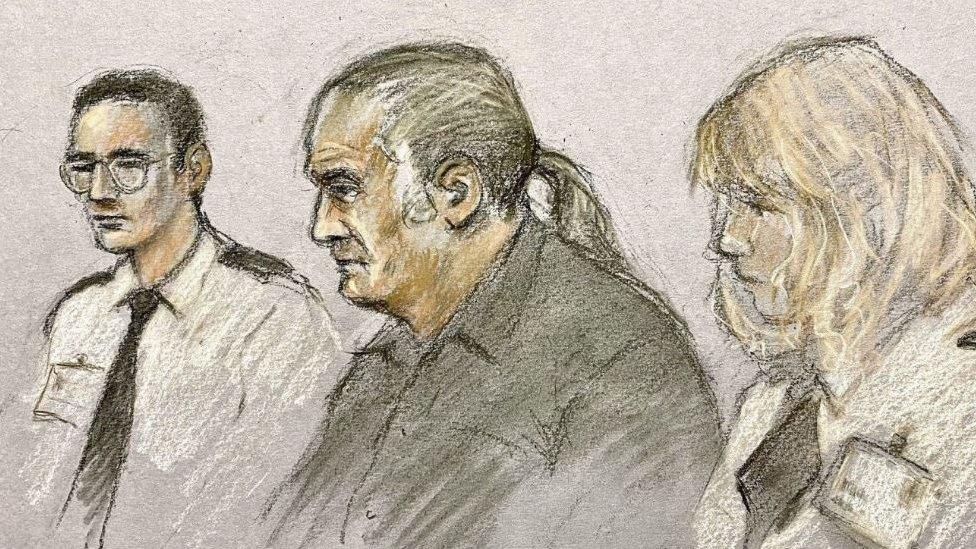Burns played 'significant' part in woman's death - court
- Published

Jacqueline Kirk had petrol poured over her in 1998, she died in 2019
Burns inflicted on a Somerset woman when she was doused with petrol and set alight 24 years ago played a "significant" role in her death, a court has heard.
Jacqueline Kirk, 61, died from a ruptured diaphragm in August 2019.
Doctors who treated her at the Royal United Hospital (RUH) in Bath said "significant scarring", caused by burns inflicted by Steven Paul Craig in 1998, affected their ability to treat her.
Mr Craig, 58, denies her murder.
On Tuesday, Bristol Crown Court heard from three of the doctors who helped treat Ms Kirk when she arrived at the Royal United Hospital (RUH) in Bath on 21 August 2019.
She was described as frail and in a poor condition with a swollen abdomen. She had several long-term illnesses including emphysema, asthma, deep vein thromboses and a heart condition.
'Extremely unwell'
The 61-year-old also had "extensive scarring across her chest and upper abdomen" after the attack left her with 35 per cent burns to her body.
Professor Tim Cook, a consultant anaesthetist, described her as being "extremely unwell" with significant swelling in her abdomen which was affecting her breathing.

Steven Craig attacked Ms Kirk in Dolphin Square, Weston-super-Mare
When asked how this was impacting on her condition, Professor Cook said that her condition was "significantly impacted by changes in physiology because of the scarring, which impacted both on her breathing and her abdomen".
'High-risk patient'
Mr James Hopkins, a general surgeon at the RUH, said that the team had considered operating on Ms Kirk but had decided against it.
"She was a very high-risk patient if surgery was undertaken," he said, on account of her previous injuries.
Jonathan Price, a consultant anaesthetist at the RUH, confirmed that Ms Kirk's cause of death was abnormal "acute right-sided diaphragmatic perforation" which led to her "bowel passing into her chest", an extremely rare event.
The decision was taken not to operate after this perforation.
When asked why, Mr Price said it was "multi-factorial."
He added: "My view would be that her burn injuries were contributors to the decision making-process regarding the decision not to operate on Jacqueline Kirk."
Jurors are being asked to decide whether Mr Craig's actions amount to murder now that Ms Kirk has died.
In 2000 he was convicted of causing grievous bodily harm with intent, after pouring petrol over Ms Kirk and setting her on fire in Dolphin Square, Weston-super-Mare, on 18 April 1998.
Mr Craig, of Brailsford Crescent, York, has pleaded not guilty to one count of murder.
The trial continues.

Follow BBC West on Facebook, external, Twitter, external and Instagram, external. Send your story ideas to: bristol@bbc.co.uk